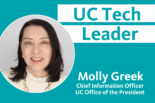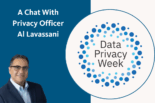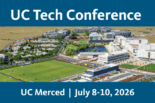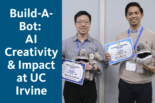Posted by Leah Burns, IT Communications Coordinator, UCOP. The National Educational Broadband Service (NEBSA) hosts an annual conference to provide Educational Broadband Service (EBS) license holders with networking opportunities, expertise, updates, and information about EBS licenses. This year, the conference was held in Jacksonville, Florida, and I had the opportunity to attend.
The University of California has over 250 licenses through the Federal Communications Commission (FCC). These licenses are used for managing the electromagnetic spectrum and include public safety, commercial and non-commercial fixed and mobile wireless services, broadcast television, radio, satellite, and other services. Ten of UC’s licenses are EBS licenses, exclusively for educational entities, which are reserved from a band of frequencies on the electromagnetic spectrum.
The NEBSA 2016 Conference featured an EBS 101 session, an introduction to EBS licenses. Any local accredited institution or government entity engaged in the formal education of enrolled students can apply for an EBS license with the FCC to provide video, voice, or data service that furthers a school’s educational mission.
The FCC permits EBS license holders to lease up to 95% of their licensed spectrum to commercial operators. Lease demand has continued to increase, and the majority of leases are to Wireless Internet Service Providers (WISPs).
Conference sessions highlighted the use of mobile technology within the framework of the University of South Florida’s Technology Integration Matrix (TIM) – a tool designed to help evaluate the level of technology adoption in classrooms and to guide teachers with effective integration models.
A keynote on connected learning was delivered by Kelvin Thompson, Associate Director of the Center for Distributed Learning at the University of Central Florida and a keynote on education in the age of the Internet of Things by David Metcalf, Director of the Mixed Emerging Technology Lab & Institute for Simulation and Training at the University of Central Florida. According to Thompson, the future of learning is untethered, blended, personalized, deeper, and connected. He noted that during the 2014-2015 academic year, 77.7% of all students at the University of Central Florida took at least one online course.
Information Technology Services at UCOP coordinates all of UC’s FCC licensing procedures, renewals, and modifications. If you have any questions, please contact Leah Burns.







